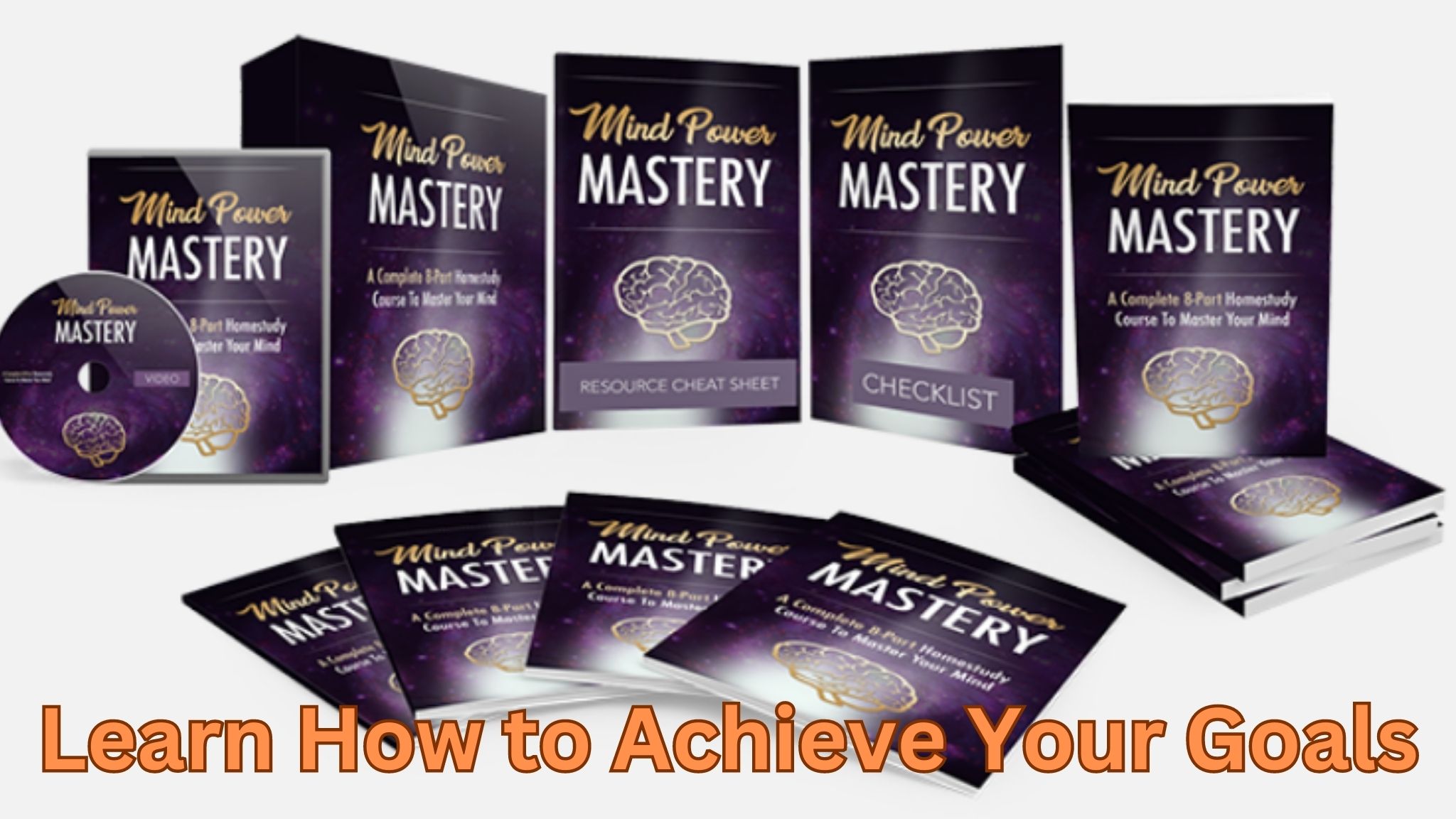Introduction
Hello everyone, Denise here! If you’re reading this, you’re probably on your own journey to lose weight, just like I was a few years ago. I know how overwhelming it can feel at times. Weight loss is complex, not just because of the physiological changes our bodies go through but also due to the myriad of information, and sometimes misinformation, available out there. But fret not, because I’m here to share with you some concrete tips and strategies I’ve learned throughout my own journey and from countless others who’ve walked this path successfully.
This blog post will be a comprehensive guide on understanding weight loss, making smart nutritional choices, increasing physical activity, staying positive and motivated, and managing your lifestyle for optimal results. Plus, I’ll also share how to harness the power of a supportive community during your journey. So, let’s dive right in and start mastering your weight loss journey!
Understanding Weight Loss
Before we jump into the practical tips and strategies, it’s essential to understand the basic science behind weight loss. It boils down to the concept of energy balance – calories in versus calories out. When we consume food, we take in calories or energy. This energy is then used up through various activities like exercising, digesting food, and even just breathing.
To lose weight, you must create a calorie deficit, which means you consume fewer calories than your body uses. When there’s a deficit, your body turns to stored fat for energy, leading to weight loss. You can achieve this deficit by eating fewer calories, burning more through exercise, or ideally, a combination of both.
However, it’s essential to remember that not all calories are created equal. Nutritious food not only keeps you fuller for longer but also provides the essential nutrients your body needs to function correctly.
Also, it’s a common misconception that drastic calorie reduction will lead to faster weight loss. While it’s true that a bigger calorie deficit can lead to quicker weight loss, too large a deficit can also be harmful. Your body may go into ‘starvation mode,’ slowing down metabolism, leading to fatigue, nutrient deficiencies, and can even cause you to lose muscle mass. It’s important to strike the right balance for sustainable and healthy weight loss.
Now that we understand the basics let’s move on to some practical tips and strategies you can incorporate into your daily life.
Nutritional Strategies: Choosing the Right Fuel
When it comes to weight loss, your diet plays an undeniably critical role. What you eat not only affects your calorie intake but also how satisfied and energized you feel throughout the day. Here are some practical strategies to enhance your dietary habits:
-
Whole foods over processed: Try to fill your plate with whole foods – fruits, vegetables, lean proteins, whole grains, and healthy fats. These foods are typically lower in calories yet higher in nutrients and fiber, keeping you satiated longer and reducing the likelihood of overeating.
-
Portion control: Be mindful of your portion sizes. Even healthy foods can contribute to weight gain when eaten in excess. Consider using smaller plates or bowls to help manage portions.
-
Mindful eating: Slow down and savor your meals. Eating mindfully helps you recognize hunger and fullness cues, reducing the chances of overeating.
-
Plan your meals: Planning meals ahead of time can help you avoid resorting to unhealthy, last-minute options. Consider dedicating time each week to meal prepping.
-
Stay hydrated: Water can aid digestion and keep you feeling full, reducing unnecessary snacking. Aim for at least eight glasses a day, more if you are active.
-
Limit added sugars: Foods with added sugars often contain lots of empty calories but little nutritional value. Aim to reduce your intake of sugary drinks, sweets, and processed foods.
Remember, there’s no one-size-fits-all diet for weight loss. What works for one person might not work for another. The key is to create a dietary routine that you can stick to in the long run and that also provides your body with the nutrients it needs. In the next section, we’ll explore the other half of the weight loss equation – physical activity.
Physical Activity: Making the Most of Movement
Physical activity is an essential part of the weight loss equation. Regular exercise not only burns calories but also improves your overall health, increases your energy levels, and can boost your mood. Here are some tips on how to get moving more:
-
Choose activities you enjoy: The best exercise is one that you enjoy and can stick with. Whether it’s walking, cycling, dancing, swimming, or yoga, choose activities that you look forward to doing.
-
Incorporate exercise into daily life: You don’t need to hit the gym to get moving. Take the stairs instead of the elevator, park your car further away, or take a walk during lunch breaks. Every bit of movement counts!
-
Try interval training: High-intensity interval training (HIIT) can be a time-efficient way to burn calories. It involves short bursts of intense exercise followed by short recovery periods.
-
Strength training is key: Strength training can help increase your metabolism, as muscle burns more calories than fat. Include exercises that work all major muscle groups a couple of days a week.
-
Set realistic goals: Start small and gradually increase the intensity and duration of your workouts. Setting achievable goals can help keep you motivated.
-
Rest and recover: Remember that your body needs time to recover, especially after intense workouts. Make sure you’re giving yourself at least one full rest day each week to avoid overtraining and injury.
Exercise is a powerful tool in your weight loss journey, but remember, it’s not just about burning calories. Physical activity also contributes to your overall health and well-being, making it a worthwhile habit regardless of your weight loss goals. In the next section, we’ll look at another significant aspect of weight loss – the power of the mind.
Psychological Tips: Maintaining Motivation and Positivity
The journey of weight loss isn’t just a physical one, it’s a mental one too. Overcoming psychological hurdles is a key aspect of achieving long-term weight loss success. Here are some strategies to help keep your mindset positive and motivation high:
-
Set realistic and specific goals: Having clear, attainable goals gives you something to strive for. Instead of vague goals like ‘lose weight’, aim for specific targets such as ‘lose 10 pounds in 3 months’ or ‘exercise 3 times a week’.
-
Celebrate small victories: Every step forward, no matter how small, is progress. Celebrate these milestones to boost your motivation and reinforce positive behavior.
-
Adopt a growth mindset: Believe in your ability to improve and overcome obstacles. Recognize that setbacks are part of the process and an opportunity to learn and grow, not a reason to quit.
-
Find your ‘why’: Understand why you want to lose weight. Having a deep, personal reason to lose weight can be a powerful motivator when things get tough.
-
Practise self-compassion: Be kind to yourself. Change takes time, and it’s okay to have off days. Don’t beat yourself up over slip-ups – instead, treat them as opportunities to learn and move forward.
-
Seek support: Share your weight loss goals with friends, family, or a weight loss support group. They can provide encouragement, celebrate your successes, and help you stay accountable.
-
Practice mindfulness: Mindfulness can help improve your relationship with food and your body. It can make you more aware of hunger and satiety cues, help you enjoy your food more, and reduce stress eating.
Your mindset can significantly influence your weight loss journey. By keeping a positive attitude and staying motivated, you can overcome challenges and make sustainable changes that lead to successful weight loss. Up next, we will discuss the power of community support in your weight loss journey.
Lifestyle Changes: Sleep, Hydration, and Stress Management
While diet and exercise are key pillars of weight loss, other lifestyle factors such as sleep, hydration, and stress management play significant roles in your weight loss journey. Let’s look at each one in detail:
-
Sleep: Quality sleep is crucial for weight loss. Lack of sleep can interfere with your body’s hunger hormones, leading to increased appetite and making weight loss more difficult. To improve your sleep, try maintaining a regular sleep schedule, creating a calm and dark sleeping environment, and limiting your use of electronic devices before bed.
-
Hydration: Water is essential for our bodies to function properly and can aid in weight loss. It helps to keep you feeling full, increases your metabolic rate, and aids in digestion. Aim to drink at least 8 glasses of water per day. You can also increase your water intake by eating hydrating foods, such as cucumbers, watermelon, and tomatoes.
-
Stress Management: Chronic stress can lead to weight gain by triggering unhealthy eating habits and reducing your motivation to exercise. To better manage stress, try techniques such as mindfulness, deep breathing exercises, yoga, or any other activity that relaxes you.
Remember, weight loss is a journey that involves more than just diet and exercise. By addressing these often overlooked aspects of lifestyle, you can create an environment that supports your weight loss goals. Up next, we’ll explore how social support can further facilitate your journey.
Harnessing the Power of Community
Embarking on a weight loss journey can sometimes feel like a lonely endeavor. But it doesn’t have to be. Having a supportive community around you can be instrumental in achieving your weight loss goals.
A strong support network can provide:
- Encouragement: Having people who believe in you and your ability to reach your weight loss goals can give you the motivation to keep going even on tough days.
- Accountability: When others are aware of your goals, it can help keep you accountable. This can be a powerful motivator to stay committed to your weight loss plan.
- Advice and Tips: A supportive community can also be a great source of information. You can learn from the experiences and knowledge of others who are also on their own weight loss journeys.
So how do you find or create such a community? Here are a few tips:
- Join online forums or social media groups focused on weight loss and healthy living.
- Partner up with a friend who also wants to lose weight and encourage each other along the way.
- Consider joining a weight loss support group or club in your local area.
- If you’re comfortable, share your weight loss journey with friends and family and invite them to support you.
Remember, there’s strength in numbers. Having a supportive community can make your weight loss journey more enjoyable and ultimately more successful. Now, let’s wrap up with a summary of what we’ve discussed.
Conclusion
Wow, we’ve covered a lot in this post! Let’s take a moment to summarize the key points:
Understanding Weight Loss: Weight loss occurs when your body burns more calories than it consumes, creating a calorie deficit. It’s important to dispel any misconceptions about quick fixes or fad diets – the science is clear on this one.
Nutritional Strategies: A balanced, nutritious diet is essential for weight loss. Making smarter food choices and paying attention to portion sizes can significantly contribute to creating that crucial calorie deficit.
Physical Activity: Exercise plays a vital role in weight loss, not just by burning calories but also by building muscle, which can boost your metabolism. The key is to find activities you enjoy so that you can make them part of your regular routine.
Psychological Tips: Maintaining motivation and a positive mindset is crucial for weight loss success. Setting realistic goals, celebrating progress, and cultivating self-compassion can help keep you on track.
Lifestyle Changes: Good sleep, adequate hydration, and effective stress management are often overlooked aspects of weight loss. They’re integral to your overall well-being and can significantly impact your weight loss efforts.
The Power of Community: Having a supportive network can make your weight loss journey much more manageable and enjoyable. It provides motivation, accountability, and valuable advice.
Remember, achieving lasting weight loss is a journey that involves more than just diet and exercise. It requires a holistic approach, addressing both your physical needs and psychological well-being. Armed with these strategies and tips, you’re better prepared to embark on your weight loss journey. Let’s move to the final section where you’ll be invited to engage with this content.
It’s your turn now!
I would absolutely love to hear from you. Have these tips and strategies inspired you? Do you have your own experiences or strategies to share that might benefit others? Feel free to leave a comment below. Remember, your insights could be the motivation someone else needs on their weight loss journey.
Questions? Don’t hesitate to ask! This space is meant to be a source of information and support, so let’s get the conversation going.
Finally, if you found this post useful, please consider sharing it. It could be exactly what a friend or family member needs to kickstart their own weight loss journey.
Thank you for joining me in this exploration of weight loss strategies. Here’s to a healthier, happier you!
Stay strong, Denise








